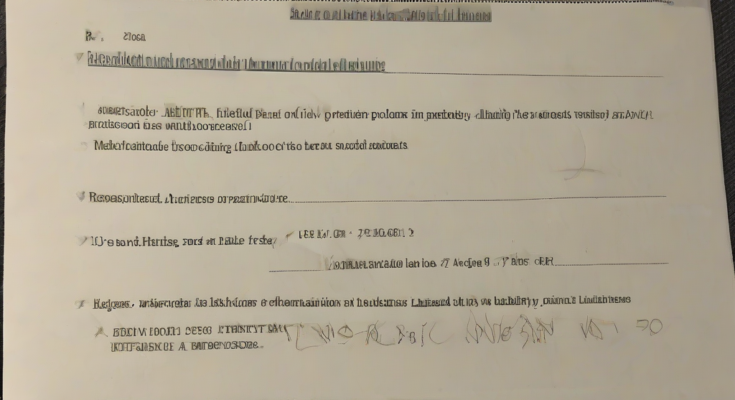Navigating the Complexities of Liability Insurance in Florida: A Comprehensive Guide
Florida, a state known for its vibrant tourism and diverse population, also presents unique challenges when it comes to liability insurance. Understanding the nuances of liability coverage is crucial for both individuals and businesses operating within the state. This comprehensive guide delves into the intricacies of Florida liability insurance, offering a detailed overview of different types of policies, key considerations, and potential pitfalls.
Types of Liability Insurance in Florida
Florida’s liability insurance landscape is broad, encompassing various types of coverage designed to protect individuals and businesses from financial losses stemming from claims of negligence or wrongdoing. Here’s a breakdown of some common types:
- Homeowners Insurance: A fundamental type of liability insurance for homeowners, it covers liability claims arising from accidents or injuries on one’s property. This typically includes bodily injury and property damage caused by the homeowner or members of their household. The coverage amount varies depending on the policy and the homeowner’s assessment of risk.
- Renters Insurance: Similar to homeowners insurance, renters insurance provides liability protection for renters. It covers liability claims related to accidents or injuries occurring in the rented premises. This is particularly important as renters are still responsible for injuries or damages caused by their negligence.
- Auto Insurance: Florida mandates minimum liability coverage for vehicle owners. This coverage protects against financial losses resulting from accidents caused by the insured driver. It covers bodily injury and property damage to third parties involved in the accident. Higher coverage limits are recommended for enhanced protection.
- Umbrella Insurance: This type of insurance acts as a supplemental layer of liability protection, extending coverage beyond the limits of existing policies such as homeowners, renters, or auto insurance. It offers broader coverage for significant liability claims that exceed the limits of underlying policies.
- Commercial General Liability (CGL) Insurance: Essential for businesses, CGL insurance protects against liability claims arising from operations, products, or completed work. It typically covers bodily injury, property damage, and advertising injury caused by the business’s operations.
- Professional Liability Insurance (Errors and Omissions Insurance): This policy protects professionals, such as doctors, lawyers, and consultants, from liability claims arising from errors or omissions in their professional services. It covers financial losses resulting from negligence or mistakes in professional practice.
- Workers’ Compensation Insurance: In Florida, employers are required to carry workers’ compensation insurance to cover medical expenses and lost wages for employees injured on the job. This is not strictly liability insurance but protects employers from lawsuits related to workplace injuries.
Key Considerations When Choosing Liability Insurance in Florida
Selecting the right liability insurance policy requires careful consideration of several factors. A thorough understanding of these aspects ensures adequate protection against potential risks:
- Coverage Limits: Determine appropriate coverage limits based on your assets, potential liabilities, and the nature of your risks. Higher limits offer greater protection against substantial liability claims.
- Deductibles: Understanding deductibles – the amount you pay out-of-pocket before the insurance coverage kicks in – is essential. Choosing a higher deductible can lower premiums but increases your financial responsibility in case of a claim.
- Policy Exclusions: Carefully review policy exclusions to understand what situations or events are not covered by the insurance. This allows for informed decision-making and avoids surprises in case of a claim.
- Insurer Reputation and Financial Stability: Select a reputable insurer with a strong financial standing to ensure the insurer can fulfill its obligations in case of a claim. Check ratings from independent agencies.
- Premium Costs: Compare premiums from multiple insurers to find the best value for your needs. However, don’t solely focus on price; prioritize adequate coverage and insurer stability.
- Specific Needs: Tailor your insurance coverage to your specific needs and circumstances. A general liability policy may not suffice for high-risk activities or professions requiring specialized coverage.
Florida’s Specific Liability Insurance Laws and Regulations
Florida has specific laws and regulations governing liability insurance. Understanding these legal aspects is vital for compliance and effective risk management:
- No-Fault Auto Insurance: Florida operates under a no-fault auto insurance system, where drivers are primarily responsible for their own medical expenses after an accident, regardless of fault. However, liability coverage is still crucial for covering damages to other parties’ vehicles or property.
- Minimum Coverage Requirements: The state mandates minimum liability coverage amounts for auto insurance. Failing to meet these requirements can result in significant penalties and legal ramifications.
- Insurance Fraud: Insurance fraud is a serious crime in Florida, with severe penalties for those involved in fraudulent claims or activities. Honesty and accuracy in claims reporting are crucial.
- State-Specific Exclusions: Certain activities or events might be specifically excluded from liability coverage under Florida law. Understanding these exclusions is essential for effective risk management.
- Regulatory Bodies: The Florida Department of Financial Services (DFS) oversees and regulates the insurance industry in the state. Familiarizing yourself with the DFS’s rules and regulations is crucial for compliance.
Common Liability Claims in Florida
Florida’s climate, tourism industry, and population density contribute to a range of common liability claims. Understanding these scenarios can aid in better risk assessment and insurance planning:
- Slip and Fall Accidents: These are prevalent, particularly in areas with high foot traffic or inclement weather. Businesses and homeowners bear responsibility for maintaining safe premises.
- Dog Bites: Florida sees a significant number of dog bite incidents, leading to liability claims against dog owners. Insurance coverage can mitigate financial losses associated with these incidents.
- Auto Accidents: High traffic volumes and diverse driving conditions contribute to a considerable number of auto accidents, necessitating adequate liability coverage.
- Premises Liability: This covers injuries or damages occurring on someone’s property due to negligence, such as inadequate maintenance or hazardous conditions.
- Swimming Pool Accidents: Florida’s warm climate makes swimming pools common, leading to potential accidents and liability claims related to pool safety and supervision.
- Watercraft Accidents: Boating and other water activities are popular in Florida, creating potential liability risks associated with accidents and injuries.
Filing a Liability Claim in Florida
Understanding the process of filing a liability claim in Florida is important for both policyholders and claimants. Here’s an outline of the typical steps involved:
- Report the Incident: Immediately report the incident to your insurance company, providing accurate details and relevant documentation.
- Cooperate with the Investigation: Cooperate fully with the insurer’s investigation, providing any necessary information or documentation.
- Seek Medical Attention: If injured, seek immediate medical attention and document all medical expenses.
- Gather Evidence: Collect evidence related to the incident, such as photos, witness statements, and police reports.
- Negotiate a Settlement: Work with your insurance company and the other party’s insurer to negotiate a fair settlement.
- Legal Representation: Consider seeking legal representation if the claim is complex or if you’re unable to reach a satisfactory settlement with the insurance company.
Protecting Yourself in Florida: Proactive Risk Management
Proactive risk management strategies can significantly reduce the likelihood of liability claims and enhance overall protection. These measures include:
- Regular Home and Property Maintenance: Addressing potential hazards, such as broken steps, slippery surfaces, or faulty wiring, minimizes the risk of accidents.
- Safe Driving Practices: Following traffic laws, maintaining vehicle maintenance, and practicing defensive driving techniques reduce the chances of auto accidents.
- Proper Pool Safety Measures: Fencing, safety covers, and adult supervision around swimming pools can mitigate the risk of accidents.
- Thorough Business Risk Assessment: Businesses should regularly assess potential hazards and implement safety measures to minimize risks.
- Employee Training and Safety Protocols: Training employees on safe work practices and establishing clear safety protocols can reduce workplace accidents.
- Regular Insurance Policy Reviews: Periodically review your insurance policies to ensure adequate coverage and address any changes in your circumstances.



